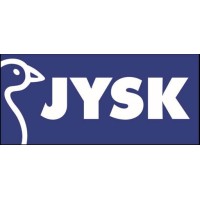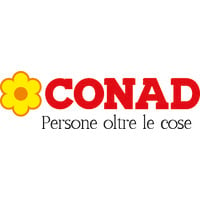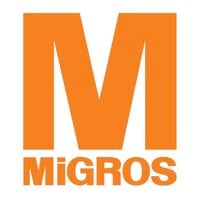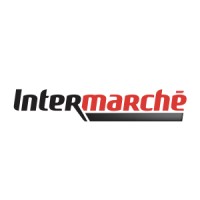
JYSK Company Cyber Security Posture
jysk.comJYSK is an international home furnishing retailer with Scandinavian roots that makes it easy to furnish every room in any home and garden. JYSK delivers a great Scandinavian offer for everyone within sleeping and living. We are a global retail chain of stores and web shops, and part of the family-owned Lars Larsen Group. Our founder, Lars Larsen, opened his first JYSK store in Aarhus, Denmark, in 1979. Today, JYSK has more than 3,400 stores in 48 countries around the world. 28 countries are operated directly by JYSK, while the remaining 20 countries are part of JYSK Franchise. With thousands of stores across the world, there is often a JYSK nearby. This makes it quick to explore our assortment, and easy to bring products home. Online, we have room for even more products, and it is crucial for us to make it easy for customers to combine our great store service with our wide online assortment to give the best possible shopping experience. This requires great employees, and our ambition is to be employees’ first choice within retail wherever JYSK is present. This means that JYSK must always be an attractive place to work, and that our employees enjoy the time they spend with us. Although JYSK today is a global business, the company is managed based on its Scandinavian roots. This is reflected in our company culture and the way we do business. JYSK MISSION 🔹 A great Scandinavian offer for everyone within sleeping and living JYSK VISION 🔹 To be customers' first choice 🔹 To be employees' first choice within retail 🔹 To be the world’s most widespread and profitable chain of stores
JYSK Company Details
jysk
11666 employees
135005.0
452
Retail
jysk.com
Scan still pending
JYS_3322300
In-progress
Between 800 and 900
This score is AI-generated and less favored by cyber insurers, who prefer the TPRM score.
 JYSK Global Score
JYSK Global Score.png)

JYSK Company Scoring based on AI Models
| Model Name | Date | Description | Current Score Difference | Score |
|---|---|---|---|---|
| AVERAGE-Industry | 03-12-2025 | This score represents the average cybersecurity rating of companies already scanned within the same industry. It provides a benchmark to compare an individual company's security posture against its industry peers. | N/A | Between 800 and 900 |
JYSK Company Cyber Security News & History
| Entity | Type | Severity | Impact | Seen | Url ID | Details | View |
|---|
JYSK Company Subsidiaries

JYSK is an international home furnishing retailer with Scandinavian roots that makes it easy to furnish every room in any home and garden. JYSK delivers a great Scandinavian offer for everyone within sleeping and living. We are a global retail chain of stores and web shops, and part of the family-owned Lars Larsen Group. Our founder, Lars Larsen, opened his first JYSK store in Aarhus, Denmark, in 1979. Today, JYSK has more than 3,400 stores in 48 countries around the world. 28 countries are operated directly by JYSK, while the remaining 20 countries are part of JYSK Franchise. With thousands of stores across the world, there is often a JYSK nearby. This makes it quick to explore our assortment, and easy to bring products home. Online, we have room for even more products, and it is crucial for us to make it easy for customers to combine our great store service with our wide online assortment to give the best possible shopping experience. This requires great employees, and our ambition is to be employees’ first choice within retail wherever JYSK is present. This means that JYSK must always be an attractive place to work, and that our employees enjoy the time they spend with us. Although JYSK today is a global business, the company is managed based on its Scandinavian roots. This is reflected in our company culture and the way we do business. JYSK MISSION 🔹 A great Scandinavian offer for everyone within sleeping and living JYSK VISION 🔹 To be customers' first choice 🔹 To be employees' first choice within retail 🔹 To be the world’s most widespread and profitable chain of stores
Access Data Using Our API

Get company history
.png)
JYSK Cyber Security News
A Hacked Danish Power Company Reflects on a Serious Breach
No data were stolen or locked with a code to demand a ransom. However, CSIS believed the attackers belonged to the Akira ransomware group and ...
Cyber security threat in Danish energy sector continues to escalate
The cyber threat is becoming increasingly pervasive in the Danish energy sector, and smaller companies are particularly vulnerable, industry leaders say.
Cybersecurity in the Supply Chain: How Prepared is Your Business?
The project focuses on identifying vulnerabilities in supply chains derived from geopolitical tensions and cyber threats, as well as which ...

JYSK Similar Companies

Circle K
Our mission at Circle K is to make our customers' lives a little easier every day. We are part of communities across North America, Europe, Asia, and the Middle East, helping us grow into one of the world’s leading convenience and fuel retail businesses. Our parent company, Alimentation Couche-Tard

Conad
PERSONE OLTRE LE COSE. Conad è una storia fatta di imprenditori, commercianti, clienti e comunità. Un lungo viaggio che inizia nella metà degli anni ’60: nel 1962 nasce a Bologna il Consorzio Nazionale Dettaglianti, una società cooperativa a responsabilità limitata costituita da 14 gruppi d’acquisto

Migros Ticaret
Türkiye'de modern perakende sektörünün öncülüğünü yapmakta olan Migros günümüzde çok geniş kullanım alanına sahip mağazalarında, gıda ve ihtiyaç maddelerinin yanı sıra kırtasiye, züccaciye, beyaz eşya, kitap ve konfeksiyon gibi bölümleriyle hemen hemen tüm müşteri gereksinimlerini karşılamaktadır.

Intermarché
Reconnue pour son combat contre la vie chère, Intermarché s'appuie sur un réseau de 2 328 points de vente en Europe (France, Belgique, Pologne, Portugal). Spécialiste des produits frais, l’enseigne propose différents formats de points de vente pour répondre aux attentes de ses clients : - Interma

toom Baumarkt
Mit rund 350 Märkten im Portfolio (toom Baumarkt, B1 Discount Baumarkt und Klee Gartenfachmarkt), 14.400 Beschäftigten und einem Bruttoumsatz von rund 2,7 Milliarden Euro zählt toom zu den führenden Anbietern der deutschen Baumarktbranche. Das Unternehmen gehört zur REWE Group, einem der führe

Marisa S.A.
Marisa S.A. is the largest Brazilian department store chain specialized in women’s clothing based on the number of stores in Brazil. The Company’s business strategy and operations focus primarily on middle-lower income women between the ages of 20 and 35. The Company’s target customers are members o

Frequently Asked Questions (FAQ) on Cybersecurity Incidents
JYSK CyberSecurity History Information
Total Incidents: According to Rankiteo, JYSK has faced 0 incidents in the past.
Incident Types: As of the current reporting period, JYSK has not encountered any cybersecurity incidents.
Total Financial Loss: The total financial loss from these incidents is estimated to be {total_financial_loss}.
Cybersecurity Posture: The company's overall cybersecurity posture is described as JYSK is an international home furnishing retailer with Scandinavian roots that makes it easy to furnish every room in any home and garden. JYSK delivers a great Scandinavian offer for everyone within sleeping and living. We are a global retail chain of stores and web shops, and part of the family-owned Lars Larsen Group. Our founder, Lars Larsen, opened his first JYSK store in Aarhus, Denmark, in 1979. Today, JYSK has more than 3,400 stores in 48 countries around the world. 28 countries are operated directly by JYSK, while the remaining 20 countries are part of JYSK Franchise. With thousands of stores across the world, there is often a JYSK nearby. This makes it quick to explore our assortment, and easy to bring products home. Online, we have room for even more products, and it is crucial for us to make it easy for customers to combine our great store service with our wide online assortment to give the best possible shopping experience. This requires great employees, and our ambition is to be employees’ first choice within retail wherever JYSK is present. This means that JYSK must always be an attractive place to work, and that our employees enjoy the time they spend with us. Although JYSK today is a global business, the company is managed based on its Scandinavian roots. This is reflected in our company culture and the way we do business. JYSK MISSION 🔹 A great Scandinavian offer for everyone within sleeping and living JYSK VISION 🔹 To be customers' first choice 🔹 To be employees' first choice within retail 🔹 To be the world’s most widespread and profitable chain of stores.
Detection and Response: The company detects and responds to cybersecurity incidents through {description_of_detection_and_response_process}.
Incident Details
Incident 1: Ransomware Attack
Title: {Incident_Title}
Description: {Brief_description_of_the_incident}
Date Detected: {Detection_Date}
Date Publicly Disclosed: {Disclosure_Date}
Date Resolved: {Resolution_Date}
Type: {Type_of_Attack}
Attack Vector: {Attack_Vector}
Vulnerability Exploited: {Vulnerability}
Threat Actor: {Threat_Actor}
Motivation: {Motivation}
Incident 2: Data Breach
Title: {Incident_Title}
Description: {Brief_description_of_the_incident}
Date Detected: {Detection_Date}
Date Publicly Disclosed: {Disclosure_Date}
Date Resolved: {Resolution_Date}
Type: {Type_of_Attack}
Attack Vector: {Attack_Vector}
Vulnerability Exploited: {Vulnerability}
Threat Actor: {Threat_Actor}
Motivation: {Motivation}
Common Attack Types: As of now, the company has not encountered any reported incidents involving common cyberattacks.
Identification of Attack Vectors: The company identifies the attack vectors used in incidents through {description_of_identification_process}.
Impact of the Incidents
Incident 1: Ransomware Attack
Financial Loss: {Financial_Loss}
Data Compromised: {Data_Compromised}
Systems Affected: {Systems_Affected}
Downtime: {Downtime}
Operational Impact: {Operational_Impact}
Conversion Rate Impact: {Conversion_Rate_Impact}
Revenue Loss: {Revenue_Loss}
Customer Complaints: {Customer_Complaints}
Brand Reputation Impact: {Brand_Reputation_Impact}
Legal Liabilities: {Legal_Liabilities}
Identity Theft Risk: {Identity_Theft_Risk}
Payment Information Risk: {Payment_Information_Risk}
Incident 2: Data Breach
Financial Loss: {Financial_Loss}
Data Compromised: {Data_Compromised}
Systems Affected: {Systems_Affected}
Downtime: {Downtime}
Operational Impact: {Operational_Impact}
Conversion Rate Impact: {Conversion_Rate_Impact}
Revenue Loss: {Revenue_Loss}
Customer Complaints: {Customer_Complaints}
Brand Reputation Impact: {Brand_Reputation_Impact}
Legal Liabilities: {Legal_Liabilities}
Identity Theft Risk: {Identity_Theft_Risk}
Payment Information Risk: {Payment_Information_Risk}
Average Financial Loss: The average financial loss per incident is {average_financial_loss}.
Commonly Compromised Data Types: The types of data most commonly compromised in incidents are {list_of_commonly_compromised_data_types}.
Incident 1: Ransomware Attack
Entity Name: {Entity_Name}
Entity Type: {Entity_Type}
Industry: {Industry}
Location: {Location}
Size: {Size}
Customers Affected: {Customers_Affected}
Incident 2: Data Breach
Entity Name: {Entity_Name}
Entity Type: {Entity_Type}
Industry: {Industry}
Location: {Location}
Size: {Size}
Customers Affected: {Customers_Affected}
Response to the Incidents
Incident 1: Ransomware Attack
Incident Response Plan Activated: {Yes/No}
Third Party Assistance: {Yes/No}
Law Enforcement Notified: {Yes/No}
Containment Measures: {Containment_Measures}
Remediation Measures: {Remediation_Measures}
Recovery Measures: {Recovery_Measures}
Communication Strategy: {Communication_Strategy}
Adaptive Behavioral WAF: {Adaptive_Behavioral_WAF}
On-Demand Scrubbing Services: {On_Demand_Scrubbing_Services}
Network Segmentation: {Network_Segmentation}
Enhanced Monitoring: {Enhanced_Monitoring}
Incident 2: Data Breach
Incident Response Plan Activated: {Yes/No}
Third Party Assistance: {Yes/No}
Law Enforcement Notified: {Yes/No}
Containment Measures: {Containment_Measures}
Remediation Measures: {Remediation_Measures}
Recovery Measures: {Recovery_Measures}
Communication Strategy: {Communication_Strategy}
Adaptive Behavioral WAF: {Adaptive_Behavioral_WAF}
On-Demand Scrubbing Services: {On_Demand_Scrubbing_Services}
Network Segmentation: {Network_Segmentation}
Enhanced Monitoring: {Enhanced_Monitoring}
Incident Response Plan: The company's incident response plan is described as {description_of_incident_response_plan}.
Third-Party Assistance: The company involves third-party assistance in incident response through {description_of_third_party_involvement}.
Data Breach Information
Incident 2: Data Breach
Type of Data Compromised: {Type_of_Data}
Number of Records Exposed: {Number_of_Records}
Sensitivity of Data: {Sensitivity_of_Data}
Data Exfiltration: {Yes/No}
Data Encryption: {Yes/No}
File Types Exposed: {File_Types}
Personally Identifiable Information: {Yes/No}
Prevention of Data Exfiltration: The company takes the following measures to prevent data exfiltration: {description_of_prevention_measures}.
Handling of PII Incidents: The company handles incidents involving personally identifiable information (PII) through {description_of_handling_process}.
Ransomware Information
Incident 1: Ransomware Attack
Ransom Demanded: {Ransom_Amount}
Ransom Paid: {Ransom_Paid}
Ransomware Strain: {Ransomware_Strain}
Data Encryption: {Yes/No}
Data Exfiltration: {Yes/No}
Ransom Payment Policy: The company's policy on paying ransoms in ransomware incidents is described as {description_of_ransom_payment_policy}.
Data Recovery from Ransomware: The company recovers data encrypted by ransomware through {description_of_data_recovery_process}.
Regulatory Compliance
Incident 1: Ransomware Attack
Regulations Violated: {Regulations_Violated}
Fines Imposed: {Fines_Imposed}
Legal Actions: {Legal_Actions}
Regulatory Notifications: {Regulatory_Notifications}
Incident 2: Data Breach
Regulations Violated: {Regulations_Violated}
Fines Imposed: {Fines_Imposed}
Legal Actions: {Legal_Actions}
Regulatory Notifications: {Regulatory_Notifications}
Regulatory Frameworks: The company complies with the following regulatory frameworks regarding cybersecurity: {list_of_regulatory_frameworks}.
Ensuring Regulatory Compliance: The company ensures compliance with regulatory requirements through {description_of_compliance_measures}.
Lessons Learned and Recommendations
Incident 1: Ransomware Attack
Lessons Learned: {Lessons_Learned}
Incident 2: Data Breach
Lessons Learned: {Lessons_Learned}
Incident 1: Ransomware Attack
Recommendations: {Recommendations}
Incident 2: Data Breach
Recommendations: {Recommendations}
Key Lessons Learned: The key lessons learned from past incidents are {list_of_key_lessons_learned}.
Implemented Recommendations: The company has implemented the following recommendations to improve cybersecurity: {list_of_implemented_recommendations}.
References
Additional Resources: Stakeholders can find additional resources on cybersecurity best practices at {list_of_additional_resources}.
Investigation Status
Incident 1: Ransomware Attack
Investigation Status: {Investigation_Status}
Incident 2: Data Breach
Investigation Status: {Investigation_Status}
Communication of Investigation Status: The company communicates the status of incident investigations to stakeholders through {description_of_communication_process}.
Stakeholder and Customer Advisories
Incident 1: Ransomware Attack
Stakeholder Advisories: {Stakeholder_Advisories}
Customer Advisories: {Customer_Advisories}
Incident 2: Data Breach
Stakeholder Advisories: {Stakeholder_Advisories}
Customer Advisories: {Customer_Advisories}
Advisories Provided: The company provides the following advisories to stakeholders and customers following an incident: {description_of_advisories_provided}.
Initial Access Broker
Incident 1: Ransomware Attack
Entry Point: {Entry_Point}
Reconnaissance Period: {Reconnaissance_Period}
Backdoors Established: {Backdoors_Established}
High Value Targets: {High_Value_Targets}
Data Sold on Dark Web: {Yes/No}
Incident 2: Data Breach
Entry Point: {Entry_Point}
Reconnaissance Period: {Reconnaissance_Period}
Backdoors Established: {Backdoors_Established}
High Value Targets: {High_Value_Targets}
Data Sold on Dark Web: {Yes/No}
Monitoring and Mitigation of Initial Access Brokers: The company monitors and mitigates the activities of initial access brokers through {description_of_monitoring_and_mitigation_measures}.
Post-Incident Analysis
Incident 1: Ransomware Attack
Root Causes: {Root_Causes}
Corrective Actions: {Corrective_Actions}
Incident 2: Data Breach
Root Causes: {Root_Causes}
Corrective Actions: {Corrective_Actions}
Post-Incident Analysis Process: The company's process for conducting post-incident analysis is described as {description_of_post_incident_analysis_process}.
Corrective Actions Taken: The company has taken the following corrective actions based on post-incident analysis: {list_of_corrective_actions_taken}.
Additional Questions
General Information
Ransom Payment History: The company has {paid/not_paid} ransoms in the past.
Last Ransom Demanded: The amount of the last ransom demanded was {last_ransom_amount}.
Last Attacking Group: The attacking group in the last incident was {last_attacking_group}.
Incident Details
Most Recent Incident Detected: The most recent incident detected was on {most_recent_incident_detected_date}.
Most Recent Incident Publicly Disclosed: The most recent incident publicly disclosed was on {most_recent_incident_publicly_disclosed_date}.
Most Recent Incident Resolved: The most recent incident resolved was on {most_recent_incident_resolved_date}.
Impact of the Incidents
Highest Financial Loss: The highest financial loss from an incident was {highest_financial_loss}.
Most Significant Data Compromised: The most significant data compromised in an incident was {most_significant_data_compromised}.
Most Significant System Affected: The most significant system affected in an incident was {most_significant_system_affected}.
Response to the Incidents
Third-Party Assistance in Most Recent Incident: The third-party assistance involved in the most recent incident was {third_party_assistance_in_most_recent_incident}.
Containment Measures in Most Recent Incident: The containment measures taken in the most recent incident were {containment_measures_in_most_recent_incident}.
Data Breach Information
Most Sensitive Data Compromised: The most sensitive data compromised in a breach was {most_sensitive_data_compromised}.
Number of Records Exposed: The number of records exposed in the most significant breach was {number_of_records_exposed}.
Ransomware Information
Highest Ransom Demanded: The highest ransom demanded in a ransomware incident was {highest_ransom_demanded}.
Highest Ransom Paid: The highest ransom paid in a ransomware incident was {highest_ransom_paid}.
Regulatory Compliance
Highest Fine Imposed: The highest fine imposed for a regulatory violation was {highest_fine_imposed}.
Most Significant Legal Action: The most significant legal action taken for a regulatory violation was {most_significant_legal_action}.
Lessons Learned and Recommendations
Most Significant Lesson Learned: The most significant lesson learned from past incidents was {most_significant_lesson_learned}.
Most Significant Recommendation Implemented: The most significant recommendation implemented to improve cybersecurity was {most_significant_recommendation_implemented}.
References
Most Recent Source: The most recent source of information about an incident is {most_recent_source}.
Most Recent URL for Additional Resources: The most recent URL for additional resources on cybersecurity best practices is {most_recent_url}.
Investigation Status
Current Status of Most Recent Investigation: The current status of the most recent investigation is {current_status_of_most_recent_investigation}.
Stakeholder and Customer Advisories
Most Recent Stakeholder Advisory: The most recent stakeholder advisory issued was {most_recent_stakeholder_advisory}.
Most Recent Customer Advisory: The most recent customer advisory issued was {most_recent_customer_advisory}.
Initial Access Broker
Most Recent Entry Point: The most recent entry point used by an initial access broker was {most_recent_entry_point}.
Most Recent Reconnaissance Period: The most recent reconnaissance period for an incident was {most_recent_reconnaissance_period}.
Post-Incident Analysis
Most Significant Root Cause: The most significant root cause identified in post-incident analysis was {most_significant_root_cause}.
Most Significant Corrective Action: The most significant corrective action taken based on post-incident analysis was {most_significant_corrective_action}.
What Do We Measure?
















Every week, Rankiteo analyzes billions of signals to give organizations a sharper, faster view of emerging risks. With deeper, more actionable intelligence at their fingertips, security teams can outpace threat actors, respond instantly to Zero-Day attacks, and dramatically shrink their risk exposure window.
These are some of the factors we use to calculate the overall score:
Identify exposed access points, detect misconfigured SSL certificates, and uncover vulnerabilities across the network infrastructure.
Gain visibility into the software components used within an organization to detect vulnerabilities, manage risk, and ensure supply chain security.
Monitor and manage all IT assets and their configurations to ensure accurate, real-time visibility across the company's technology environment.
Leverage real-time insights on active threats, malware campaigns, and emerging vulnerabilities to proactively defend against evolving cyberattacks.




